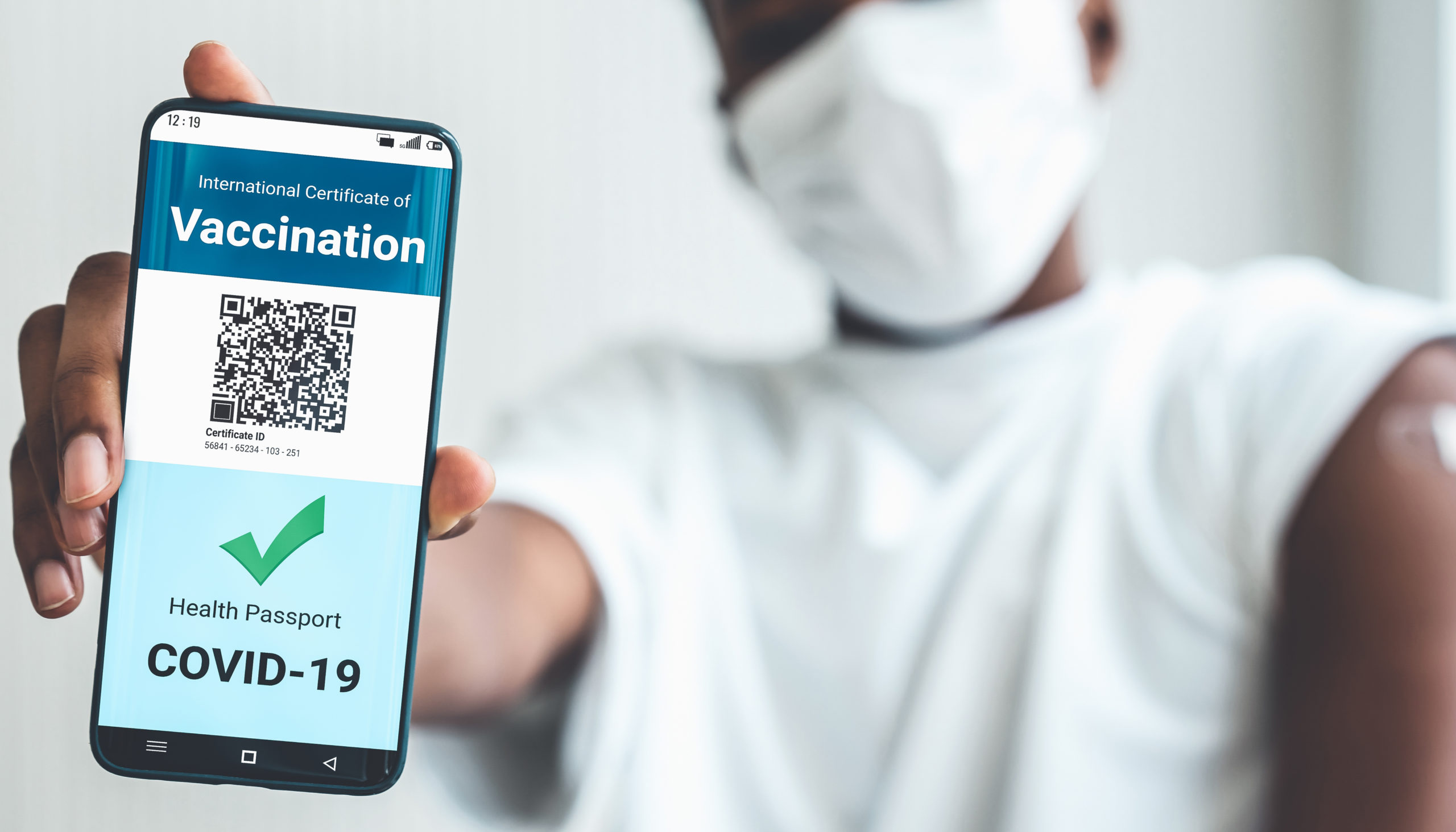Digital Health Passports: The Future of Travel?
 As the COVID-19 vaccine roll out sprawls across the globe, many countries are looking at ways to ensure the travel industry can safely pick back up. In a post-pandemic world, travelers should be prepared to use digital health passports to prove vaccination status to make it easier to enter certain countries or be exempt from strict testing and quarantine requirements.
As the COVID-19 vaccine roll out sprawls across the globe, many countries are looking at ways to ensure the travel industry can safely pick back up. In a post-pandemic world, travelers should be prepared to use digital health passports to prove vaccination status to make it easier to enter certain countries or be exempt from strict testing and quarantine requirements.
But what does a digital health passport mean? Let’s break it down.
What is a vaccine passport?
Also known as a digital health pass, a digital health passport is a digital documentation that an individual has been vaccinated against the COVID-19 virus.
Stored on a phone or digital wallet, the data is typically presented as a QR code and can show if a person has tested negative for a virus.
Why are vaccine passports being introduced now – COVID-19 is not the first highly contagious virus?
Though it feels like a new concept, proving immunization status in order to travel is not a new concept. For decades, people have had to show physical cards as proof of vaccination against diseases like cholera, yellow fever, and rubella when traveling to certain countries.
In fact, many countries, including the United States, require immunization information and specific health assessments before approving visas.
However, this marks the first time the industry has rallied behind an electronic alternative designed to improve verifiability and circumvent some of the hold-ups caused by paper counterparts. The digital passport will reduce bottlenecks and mitigate potential risks, such as losing a physical card.
How do you get a digital health passport?
The passport will require an app on a smartphone. Travelers can either connect the passport app with their travel provider or upload their itinerary. The app provides guidance for what verifications they need to travel, like obtaining a negative COVID test. Once those steps are met, and the results are accepted, the traveler will receive a QR code, or other proof, verifying they are safe to fly.
The first digital health passports to emerge included ICC AOKpass, CoronaPass, and CommonPass.
Other passports include the International Air Transport Association (IATA) Travel Pass, Mvine-iProov passport, VeriFLY, V-Health Passport, Passport for COVID, and CCI Linux.
What are the benefits of a digital health passport?
The success of digital health passports will hinge on the effectiveness of vaccines. If the vaccine is highly successful, as it is anticipated to be, these passports will further help reduce the transmission of disease.
The digital platform will also aid both travelers and airlines in developing a streamlined system to fly safely. This system provides a simple and effective way to monitor vaccinations and negative COVID tests, reducing bottlenecks caused by checking individual paper records or undergoing a series of questions.
The digital health passport is also hypothesized to be the quickest way to revive the travel industry. Over the last 18 months, experts have been researching the safest way to open up travel. While the vaccine is still being rolled out, those who have received the vaccine may be able to indulge in their wanderlust sooner than anticipated.
What are the challenges of a digital health passport?
One of the biggest challenges of the digital health passport will be identifying a universal platform. While the concept of a digital health passport is meant to streamline processes, having multiple apps could cause chaos between airlines and travelers.
Additionally, ensuring users’ certifications are linked to verified and approved medical facilities will prove a significant challenge.
The WHO is working with agencies, including the International Air Transport Association and the International Civil Aviation Organization, to develop standards for digital vaccination cards. It added that its position on health passes will evolve as evidence about existing and new Covid-19 vaccines is updated.
Are you a travel bug chomping at the bit to start traveling again? Support game-changing cancer research as you jet off!
The National Foundation for Cancer Research has partnered with several airlines to support cancer research providing donors with a win-win giving opportunity. Fly to Find a Cure is a program that allows frequent flyers, travel enthusiasts, and most importantly, those passionate about supporting cancer research to make a real impact through giving with the benefit of receiving airline miles in return!
If you’re a member of Alaska Mileage Plan or United Mileage Plus, you can get 10 miles per dollar donated year-round and up to 15 miles per dollar donated during our limited specials! Visit nfcr.org/miles to learn more.
Additional Reads You May Enjoy:
5 Tips for Eating Healthy While Traveling
Lingering Effects of COVID-19 on Travel and 5 Tips on How to Plan Ahead
Turn Your NFCR Donation Into A Dream Vacation
Stay connected with the cancer community! Receive NFCR’s monthly e-newsletter and blogs featuring stories of inspiration, support resources, cancer prevention tips, and more. Sign up here.











